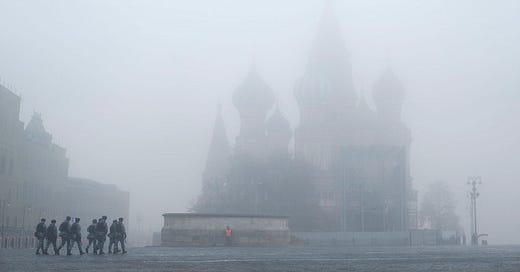It’s been 1 week since Wagner’s aborted mutiny in Russia and we have as many new questions as answers. Ad Astra stands by our position that this is a destabilizing event in Russia and will prompt a crackdown. However, in our initial reporting we stated that Prigozhin extracted the firing of the Russian Minister of Defense, which seems to be untrue. It’s also not clear that Putin will be significantly weakened by the mutiny, although that’s possible. It’s also possible that events will mirror the 2016 failed coup in Turkey, in which President Recep Tayyip Erdoğan saw his approval increase.
By far the biggest outstanding question is why did Prigozhin call off his spectacularly successful operation shortly before reaching Moscow? Some Western intelligence agencies have surmised that Prigozhin was not seeing the widespread defections from the Russian military he expected. This contrasts with the successful 1922 coup that brought Fascist party leader Benito Mussolini to power in Italy:
The Italian Fascists were a large and established party with strong support. The march itself involved 30,000 men. When they reached Rome from Naples fascist paramilitaries were soon parading the capital’s streets. The Prime Minister Luigi Facta wanted to resist, but the King, fearing bloodshed, would not agree and threatened to abdicate unless Facta resigned. Mussolini did not need to seize power by force; he achieved it by constitutional means, though because of the threat of force.[i]
This theory is not certain, but it seems to be the best explanation currently available.
Ukraine war implications
We initially thought this may hurt the Russian war effort in Ukraine. Now we’re not so sure. University of Chicago Professor John Mearsheimer recently laid out a grim but compelling analysis of the war on his Substack:
The Ukrainian military had the upper hand in the latter half of 2022, which allowed it to take back territory from Russia in the Kharkiv and Kherson regions. But Russia responded to those defeats by mobilizing 300,000 additional troops, reorganizing it army, shortening its front lines, and learning from its mistakes. The locus of the fighting in 2023 has been in eastern Ukraine, mainly in the Donetsk and Zaporozhe regions. The Russians have had the upper hand this year, mainly because they have a substantial advantage in artillery, which is the most important weapon in attrition warfare.
Moscow’s advantage was evident in the battle for Bakhmut, which ended when the Russians captured that city in late May (2023). Although it took Russian forces ten months to take control of Bakhmut they inflicted huge casualties on Ukrainian forces with their artillery. Shortly thereafter on 4 June, Ukraine launched its long-awaited counter-offensive at different locations in the Donetsk and Zaporozhe regions. The aim is to penetrate Russia’s front lines of defense, deliver a staggering blow to Russian forces, and take back a substantial amount of Ukrainian territory that is now under Russian control. In essence, the aim is to duplicate Ukraine’s successes in Kharkiv and Kherson in 2022.
Ukraine’s army has made little progress so far in achieving those goals and instead is bogged down in deadly attrition battles with Russian forces. In 2022, Ukraine was successful in the Kharkiv and Kherson campaigns because its army was fighting against outnumbered and overextended Russian forces. That is not the case today: Ukraine is attacking into the face of well-prepared lines of Russian defense. But even if Ukrainian forces break through those defensive lines, Russian troops will quickly stabilize the front and the attrition battles will continue. The Ukrainians are at a disadvantage in these encounters because the Russians have a significant firepower advantage.[ii]
Global implications
The aborted mutiny and Wagner’s exile to Belarus will have geopolitical consequences. First, although a close ally to Russia, Belarus is much weaker than Russia and thus vulnerable. The stationing of Wagner troops in Belarus gives them a bargaining chip with Russia. Second, nobody is hurt more from a weakened Russia than China, who would be alone in the US gunsight if Russia were to fall. Therefore, expect closer cooperation between China and Russia. Finally, 6.5 billion people in the Global South have not picked a side in the Russian-US proxy war. Expect them to be paying close attention to any fallout from this failed mutiny.







